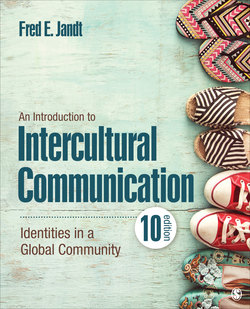Читать книгу An Introduction to Intercultural Communication - Fred E. Jandt - Страница 75
На сайте Литреса книга снята с продажи.
Postethnic Cultures
ОглавлениеYou read earlier in this chapter that John Dewey criticized cultural pluralism as encouraging people to identify themselves as members of one group. If a person is born female in Texas of immigrant parents from Mexico and then becomes an attorney, a Republican, and a Baptist and currently lives in Minneapolis, who is she? In the United States, can she identify herself as any one of these? As all of these? Will others most likely identify her first as Hispanic?
A postethnic perspective recognizes that each of us, like the Minneapolis attorney, lives in many diverse groups and so we aren’t confined to only one group. Angela Davis (1992) used the image of “a rope attached to an anchor”: While we may be anchored in one community, our “ropes” should be long enough to permit us to move into other communities.
Hollinger (1995) describes a postethnic perspective as a challenge to the “right” of our grandparents to establish our primary identity. Postethnicity “prefers voluntary to prescribed affiliations, appreciates multiple identities, pushes for communities of wide scope, recognizes the constructed character of ethno-racial groups, and accepts the formation of new groups as a part of the normal life of a democratic society” (p. 116). Postethnicity recognizes that groups based on affiliations are as substantive and authentic as groups based on blood and history.
In one sense, postethnicity is an idealistic attempt to redefine groups rigidly based on ethnicity into groups based on voluntary interests. However, if viewed from the perspective of dominant U.S. cultural values—particularly individualism—postethnicity is a reaffirmation of individuals’ right to define themselves by individual interest and not by heritage. Postethnicity in the United States may be an extension of extreme individualism. A postethnic perspective does not assume that everyone is the same. Rather, it recognizes our interdependent future and stretches the boundaries of we. Using the rhetorical sensitivity theory, some will argue that postethnicity is an example of noble selves.
It’s important to recognize the criticism of postethnicity: that it is idealistic to assume that others will not continue to label some people as members of a group and communicate with them as members of that group and not as individuals.
